This article needs additional citations for verification. (October 2011) (Learn how and when to remove this template message) |
The ghazal (Urdu: ???? ??, Persian: ????, Pashto: ????,), a type of amatory poem or ode, originating in Arabic poetry.
Contents
History
The ghazal originated in Arabia in the 7th century and later spread throughout the Middle East and South Asia. It was famous all around the Indian subcontinent in the 18th and 19th centuries. A ghazal may be understood as a poetic expression of both the pain of loss or separation and the beauty of love in spite of that pain. It is derived from the Arabian panegyric qasida. The structural requirements of the ghazal are similar in stringency to those of the Petrarchan sonnet. In style and content, it is a genre that has proved capable of an extraordinary variety of expression around its central themes of love and separation.
The ghazal was spread into South Asia in the 12th century by the influence of Sufi mystics and the courts of the new Islamic sultanates. Ameer Khusrow of the 13th century is considered as the first Urdu poet. Although the ghazal is most prominently a form of Dari and Urdu poetry, it is now found in the poetry of many languages on the Indian subcontinent.
Ghazals were written by Rumi and Hafiz of Persia; the Azerbaijani Turkish poet Fuzûlî in the Ottoman Empire; Mirza Ghalib and Muhammad Iqbal of North India; and Kazi Nazrul Islam of Bengal. Through the influence of Goethe (1749–1832), the ghazal became very popular in Germany during the 19th century; the form was used extensively by Friedrich Rückert (1788–1866) and August von Platen (1796–1835). The Kashmiri poet Agha Shahid Ali was a proponent of the form, both in English and in other languages; he edited a volume of "real Ghazals in English". Ghazals were also written by Moti Ram Bhatta (1866–1896), the pioneer of Nepali ghazal writing in Nepali., Ghazals were also written by Hamza Shinwari, He is known as the father of Pashto Ghazals
The ghazal was initially composed to a purely religious theme. Now it is more likely to lean towards romantic themes. All the lines of a ghazal have the same meter. It is common in ghazals for the poet's name (known as takhallus) to be featured in the last verse (a convention known as the maqta).
Pronunciation
The Arabic word ??? ?azal is pronounced [??azal], roughly like the English word guzzle, but with the ? pronounced without a complete closure between the tongue and the soft palate[unreliable source?]. In English, the word is pronounced /???z?l/[6] or /??æzæl/.[7]
Themes
Unconditional, superior love
Can usually be interpreted for a higher being or for a mortal beloved. Love is always viewed as something that will complete a human being, and if attained will lift him or her into the ranks of the wise, or will bring satisfaction to the soul of the poet. Traditional ghazal law may or may not have an explicit element of sexual desire in it, and the love may be spiritual. The love may be directed to either a man or a woman.[8]
The ghazal is always written from the point of view of the unrequited lover whose beloved is portrayed as unattainable[unreliable source?]. Most often, either the beloved has not returned the poet's love or returns it without sincerity or else the societal circumstances do not allow it. The lover is aware and resigned to this fate but continues loving nonetheless; the lyrical impetus of the poem derives from this tension. Representations of the lover's powerlessness to resist his feelings often include lyrically exaggerated violence. The beloved's power to captivate the speaker may be represented in extended metaphors about the "arrows of his eyes", or by referring to the beloved as an assassin or a killer. Take, for example, the following couplets from Amir Khusro's Persian ghazal Nami danam chi manzil buud shab:
nemidanam che manzel bood shab jayi ke man boodam; |
I wonder what was the place where I was last night, |
Sufism
Many of the major historical ghazal poets were either avowed Sufis themselves (like Rumi or Hafiz), or were sympathizers with Sufi ideas.[citation needed] Most ghazals can be viewed in a spiritual context, with the Beloved being a metaphor for God or the poet's spiritual master. It is the intense Divine Love of Sufism that serves as a model for all the forms of love found in ghazal poetry.[citation needed]
Most ghazal scholars today recognize that some ghazal couplets are exclusively about Divine Love (ishq-e-haqiqi). Others are about "earthly love" (ishq-e-majazi), but many of them can be interpreted in either context.
Traditionally invoking melancholy, love, longing, and metaphysical questions, ghazals are often sung by Afghan, Pakistani, and Indian musicians. The form has roots in seventh-century Arabia[unreliable source?],[citation needed] and gained prominence in the thirteenth- and fourteenth-century, thanks to such Persian poets as Rumi and Hafiz, and later to Indian poets such as Mirza Ghalib. In the eighteenth-century, the ghazal was used by poets writing in Urdu. Among these poets, Ghalib is the recognized master[unreliable source?].
Important poets of Persian ghazal
In Persian, prominent and acclaimed ghazal poets include Hafez, Rumi, Saadi Shirazi, Fakhr-al-Din Iraqi, Khwaju Kermani, Saib Tabrizi, Hossein Monzavi, Maryam Jafari Azarmani, Wali Mohammed Wali, Mirza Ghalib, Mir Taqi Mir, Momin Khan Momin, Daagh Dehlvi, Khwaja Haidar Ali Aatish, Jan Nisar Akhtar, Khwaja Mir Dard, Jaun Elia, Faiz Ahmad Faiz, Ahmad Faraz, Firaq Gorakhpuri, Muhammad Iqbal, Syed Amin Ashraf, Qamar Jalalabadi, Shakeb Jalali, Nasir Kazmi, Sahir Ludhianvi, Hasrat Mohani, Makhdoom Mohiuddin, Jigar Moradabadi, Saghar Siddiqui, Munir Niazi, Mirza Rafi Sauda, Qateel Shifai, Majrooh Sultanpuri, Dushyant Kumar, Syed Waheed Ashraf, Mohammad Ibrahim Zauq and Kashmiri Lal Zakir.
Translations and performance of classical ghazal
Enormous collections of ghazal have been created by hundreds of well-known poets over the past thousand years in Persian, Turkish, and Urdu as well as in the Central Asian Turkic languages. Ghazal poems are performed in Uzbek-Tajik Shashmakom, Turkish Makam, Persian Dastgah and Uyghur Muqam. There are many published translations from Persian and Turkish by Annemarie Schimmel, Arthur John Arberry and many others.
Ghazal "Gayaki", the art of singing or performing the ghazal in the Indian classical tradition, is very old. Singers like Ustad Barkat Ali and many other singers in the past used to practice it, but the lack of historical records make many names anonymous. It was with Begum Akhtar and later on Ustad Mehdi Hassan that classical rendering of ghazals became popular in the masses. The categorization of ghazal singing as a form of "light classical" music is a misconception.
Classical ghazals are difficult to render because of the varying moods of the "shers" or couplets in the ghazal. Amanat Ali Khan, Begum Akhtar, Talat Mahmood, Mehdi Hassan, Abida Parveen, Jagjit Singh, Farida Khanum and Ustad Ghulam Ali, Moinuddin Ahamed, are popular classical ghazal singers.
Popularity
Understanding the complex lyrics of ghazals required education typically available only to the upper classes. The traditional classical r?gas in which the lyrics were rendered were also difficult to understand. The Ghazal has undergone some simplification in terms of words and phrasings, which helps it to reach a larger audience around the world. Most of the ghazals are now sung in styles that are not limited to khay?l, thumri, r?ga, t?la and other classical and light classical genres.
However, those forms of the ghazal are looked down on by purists of the Indian classical tradition. In Pakistan, Noor Jehan, Iqbal Bano, Abida Parveen, Farida Khanum, Ghulam Ali, Ahmed Rushdi, Ustad Amanat Ali Khan and Mehdi Hassan are known for ghazal renditions. Singers like Jagjit Singh (who first used a guitar in ghazals), Ahmed and Mohammed Hussain, Hariharan, Adithya Srinivasan, Mohammad Rafi, Pankaj Udhas, Satyam Anandjee (Singer) and many others have been able to give a new shape to the ghazal by incorporating elements of Western music.
In North India, in addition to Hindustani, ghazals have been very popular in the Gujarati language. For around a century, starting with Balashankar Kantharia, there have been many notable Gujarati ghazal writers like Kalapi, Barkat Virani 'Befaam', Aasim Randeri, Shunya Palanpuri, Amrut Ghayal, Khalil Dhantejvi and many more. Some notable ghazals of those prominent writers have been sung by Bollywood playback singer Manhar Udhas.
Renowned ghazal singer, and pioneer of Telugu ghazals, Ghazal Srinivas popularized the ghazal in Telugu. Srinivas also introduced ghazal singing in Kannada, and Ghazals in Kannada were written by Markandapuram Srinivas.
The first true-to-form Bangla (Bengali) ghazal are published in "gajaler aayanaay" by British Dashgupta.[citation needed]
The Canadian classical ghazal singer Cassius Khan has the unusual talent of singing in the recitational style while accompanying himself on the tabla.
In English
After nearly a century of "false starts", the early experiments of James Clarence Mangan, James Elroy Flecker, Adrienne Rich, Phyllis Webb, etc., many of whom did not adhere wholly or in part to the traditional principles of the form, experiments dubbed as "the bastard Ghazal",[9] the ghazal finally began to be recognized as a viable closed form in poetry of the English language some time in the early to mid-1990s. It came about largely as a result of serious, true-to-form examples being published by noted American poets John Hollander, W. S. Merwin and Elise Paschen as well as by Kashmiri-American poet Agha Shahid Ali, who had been teaching and spreading word of the Ghazal at American universities over the previous two decades. Jim Harrison created his own free-form Ghazal true to his poetic vision in Outlyer and Ghazals (1971).[10]
In 1996, Ali compiled and edited the world's first anthology of English-language Ghazals, published by Wesleyan University Press in 2000, as Ravishing DisUnities: Real Ghazals in English. (Fewer than one in ten of the ghazals collected in Real Ghazals in English observe the constraints of the form.) Devi Panthi of Nepal started composing ghazals claiming himself the pioneer of Englis
Watch movie Ghazal online on Amazon
Watch movie Ghazal online
Watch The Movie On PrimeSaamy Full HD Movie Download
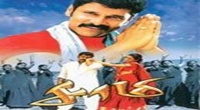
Daasi Full HD Movie Download
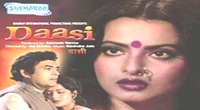
Aadmi (1978) Full HD Movie Download
.jpg)
Intezar Full HD Movie Download
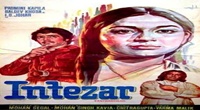
Mardon Wali Baat Full HD Movie Download
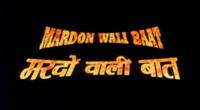
Laawaris Full HD Movie Download
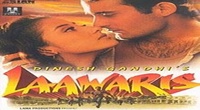
Meri Marzi (2011) Full HD Movie Download
.jpg)
Shri Balaji Mahima Full HD Movie Download
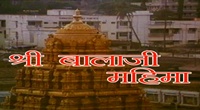
Patnam Vachina Pativratalu Full HD Movie Download
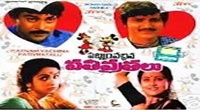
Jaathi Malli Full HD Movie Download
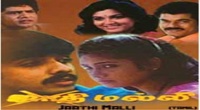
Manathil Uruthi Vendum Full HD Movie Download
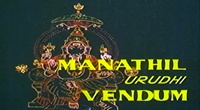
Bheeshma Partigyaa Full HD Movie Download
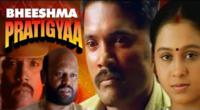
Adikkurippu Full HD Movie Download
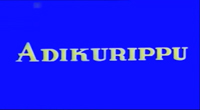
Iru Medaigal Full HD Movie Download
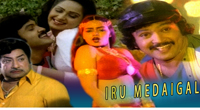
Enga Mama Full HD Movie Download
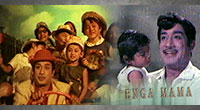
Street Fighter Full HD Movie Download
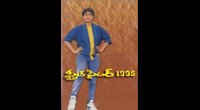
Iddaru Mitrulu Full HD Movie Download
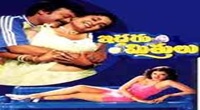
Subhodayam Full HD Movie Download
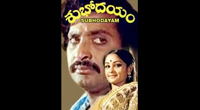
Gudachari 116 Full HD Movie Download
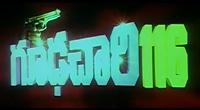
Kalangarai Vilakkam Full HD Movie Download
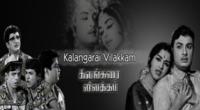
Faasle Full HD Movie Download
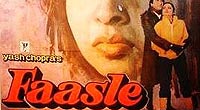
Download latest Movie from bollywood
- 1> baaghi 3
- 2> THE SKY IS PINK MOVIE FULL STORY AND REVIEW
- 3> Luka Chuppi
- 4> TO ALL THE BOYS I’VE LOVED BEFORE
- 5> Kabir Singh
- 6> Street Dancer 3D
- 7> Simmba
- 8> Gone Girl
- 9> The Girl Who Lived
- 10> Ludo
- 11> DILWALE DULHANIA LE JAYENGE
- 12> GUILTY
- 13> The Godfather
- 14> Adventures of Rusty
- 15> Sooryavanshi
- 16> Satyameva Jayate 2
- 17> Thappad
- 18> Bhool Bhulaiyaa 2
- 19> KGFChapter 2
- 20> Mardaani 2
- 21> Pinjar
- 22> Shivaji maharaj
- 23> Ek Villian 2
- 24> Hungama 2
- 25> Divergent
- 26> Mumbai Saga
- 27> The Internship
- 28> HIT (telugu)
- 29> Panga
- 30> The perfect date
- 31> 16 December
- 32> Gopala Gopala (Telugu)
- 33> Brahmastra
- 34> Gangubai Kathiawadi
- 35> Manmadhudu
- 36> Nenu local
- 37> Mahanati
- 38> Shatamanam bavathi
- 39> Lagaan
- 40> After
- 41> MOM
- 42> Shamshera
- 43> Raguvaran BTech
- 44> Khakee
- 45> The villain
- 46> OM
- 47> Mr. perfect
- 48> Bueatifull mind
- 49> Hichki
- 50> Gabbar Singh
- 51> Jogi
- 52> Before Sunrise
- 53> Before Sunset
- 54> Before Midnight
- 55> The Big Bull
- 56> Top Gun: Maverick
- 57> The Purge
- 58> The Sky is Pink
- 59> Laxmmi Bomb
- 60> Sadak 2
- 61> Sufna
- 62> Prithviraj
- 63> PK
- 64> Coolie No 1(2020)
- 65> Black Widow
- 66> Dear Zindagi
- 67> Dil Bechara
- 68> PHIR HERA PHERI
- 69> WAR
- 70> Dostana
- 71> RRR: Roudram Ranam Rudhiram
- 72> Maidan
- 73> Dabbang 3
- 74> Chhalaang
- 75> life as we know it
- 76> SherShaah
- 77> Sandeep Aur Pinky Faraar
- 78> Event Horizon
- 79> 83
- 80> Radhe: Your Most Wanted Bhai
- 81> Gunjan Saxena: The Kargil Girl
- 82> Mr India
- 83> Vivah
- 84> Anokha Bandhan
- 85> Ghost
- 86> Bhoot: Part One - The Haunted Ship
- 87> Haseen Dilruba
- 88> Laal Singh Chaddha
- 89> Qismat
- 90> Rajput
- 91> Drive
- 92> Dil Chahta Hai
- 93> Dil Ki Baazi
- 94> Dil Ka Rishta
- 95> Teesri Manzil
- 96> Dil
- 97> Love Aaj Kal
- 98> Khaali Peeli
- 99> Bunty Aur Babli 2
- 100> Atrangi Re
- 101> Gulabo Sitabo
- 102> Jodi
- 103> Suraj Pe Mangal Bhari
- 104> Deewana
- 105> Attack
- 106> Sardar Udham Singh
- 107> Toofan
- 108> THE LOVEBIRDS
- 109> Jersey
- 110> Ginny Weds Sunny
- 111> Thalaivi
- 112> Shiddat
- 113> Angels vs Zombies
- 114> Koi Mil Gya
- 115> Thank God
- 116> Bhuj: The Pride of India
- 117> Hum Aapke Hain Kaun
- 118> The Platform
- 119> Bird Box
- 120> Roohi Afzana
- 121> Torbaaz
- 122> Nikamma
- 123> World War Z
- 124> Extraction
- 125> Train to Busan
- 126> Life of Pi
- 127> SHAADI MEIN JROOR AANA
- 128> Himmat Aur Mehnat
- 129> To All The Boys: P.S. I Still Love You
- 130> Mimi
- 131> Good Newwz
- 132> Shubh Mangal Zyada Saavdhan
- 133> Raabta
- 134> Harry Potter and the Philosopher's Stone
- 135> Harry Potter and the Chamber of Secrets
- 136> Chhapaak
- 137> War of the Worlds
- 138> Harry Potter and the Prisoner of Azkaban
- 139> Harry Potter and the Goblet of Fire
- 140> MURDER MYSTERY
- 141> Shakuntala Devi
- 142> Bachchan Pandey
- 143> Jayeshbhai Jordar
- 144> Sheer Qorma
- 145> Saina
- 146> 'O' Pushpa I hate tears
- 147> Kedarnath
- 148> MS Dhoni The Untold Story
- 149> Chhichhore
- 150> Badhaai Ho
- 151> Unstoppable
- 152> Oz the Great And Powerful
- 153> The Girl on the Train
- 154> Haathi Mere Saathi 2020
- 155> The Conjuring: The Devil Made Me Do It
- 156> Gandhi Se Pehle Gandhi
- 157> The Song of Scorpions
- 158> Srimanthudu
- 159> Hello Guru Prema Kosame
- 160> Beauty and The Beast
- 161> Black Panther
- 162> Charlie and the Chocolate Factory
- 163> Bole Chudiyan
- 164> Fidaa
- 165> Duvvada Jagannadham
- 166> Bruce Lee: The Fighter
- 167> Hyper
- 168> Yaara
- 169> Red (2020)
- 170> Shivam
- 171> That Is Mahalakshmi
- 172> Nishabdham
- 173> Aashram 2020 web series
- 174> Laxmii
- 175> Mismatched
- 176> STUDENT OF THE YEAR 2
- 177> NAIL POLISH
- 178> Ramprasad Ki Tehrvi
- 179> KAAGAZ
- 180> 12 o Clock
- 181> The Power
- 182> bolo hau
- 183> Tribhanga
- 184> JAMUN
- 185> Madam Chief Minister
- 186> Maasaab
- 187> Aadhaar
- 188> Tanhaji
- 189> Bhaagi 3
- 190> Bhootnath
- 191> MALANG
- 192> Jai Mummy Di
- 193> Haathi Mere Saathi 2021
- 194> Shakeela
- 195> Unpaused
- 196> Annayya
- 197> Vamsoddharakudu
- 198> Mrugaraju
- 199> Narasimha Naidu
- 200> Sankranti
- 201> Manasu Maata Vinadhu
- 202> Anjaane
- 203> Apaharan
- 204> Bachke Rehna Re Baba
- 205> Bewafaa
- 206> Roohi
- 207> Radhe
- 208> Zindagi Khoobsoorat Hai
- 209> Yeh Mohabbat Hai
- 210> Yeh Kya Ho Raha Hai?
- 211> The Tomorrow War
- 212> DehradunDiary
- 213> Meri Shaadi Karaoo
- 214> Matruu Ki Bijlee Ka Mandola
- 215> No One Killed Jesica
- 216> Aag Ka Goola
- 217> Eight Million Dollars
- 218> Three Hundred
- 219> Cats and Dog
- 220> Decoy
- 221> Gold Rush
- 222> You Have Got Mail
- 223> Final Destination three
- 224> Tofan
- 225> Jungle
